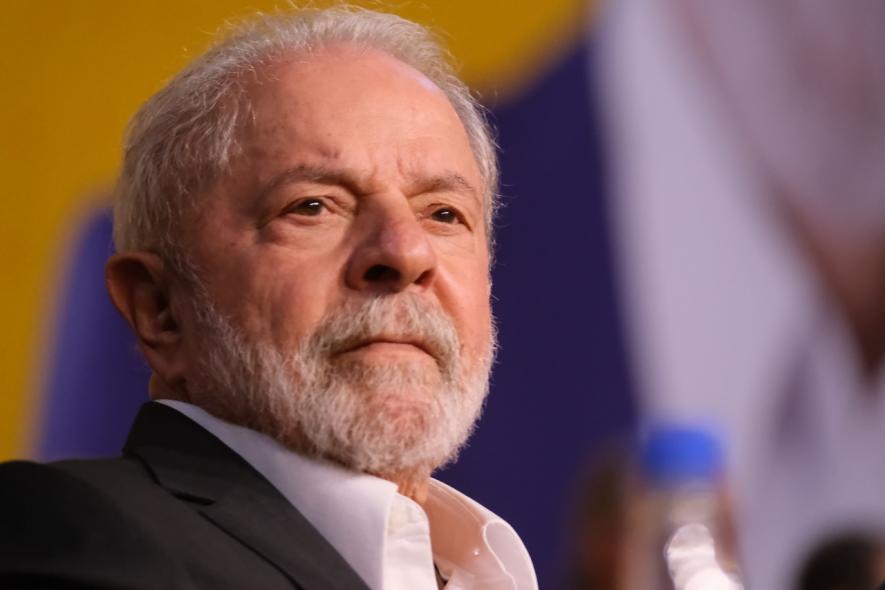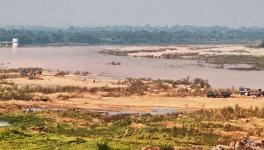Brazil's Lula Picks Amazon Defender as Environment Minister; Record 11 Women in Cabinet

Lula. Image Courtesy: Wikimedia Commons
Rio de Janerio: Brazil´s President-elect Luiz Inácio Lula da Silva announced on Thursday that Amazon activist Marina Silva will be the country´s next minister of environment. The announcement indicates the new administration will prioritise cracking down on illegal deforestation in the forest even if it means running afoul of powerful agribusiness interests.
Both attended the recent UN climate conference in Egypt, where Lula promised cheering crowds “zero deforestation” in the Amazon, the world's largest rainforest and a key to fighting climate change, by 2030. “There will be no climate security if the Amazon isn't protected,” he said.
Silva told the news network Globo TV shortly after the announcement that the name of the ministry she will lead will be changed to the Ministry of Environment and Climate Change.
Many agribusiness players and associated lawmakers resent Silva. That stems from her time as environment minister during most of Lula's prior presidency, from 2003 to 2010.
Lula also named Sonia Guajajara, an Indigenous woman, as Brazil's first minister of Indigenous peoples, and Carlos Fávaro, a soybean producer, as agriculture minister.
Silva was born in the Amazon and worked as a rubber tapper as an adolescent. As environment minister she oversaw the creation of dozens of conservation areas and a sophisticated strategy against deforestation with major operations against environmental criminals and new satellite surveillance.
She also helped design the largest international effort to preserve the rainforest, the mostly Norway-backed Amazon Fund.
Deforestation dropped dramatically.
But Lula and Silva fell out as he began catering to farmers during his second term and Silva resigned in 2008.
Lula appears to have convinced her that he has changed tack, and she joined his campaign after he embraced her proposals for preservation.
“Brazil will return to the protagonist role it previously had when it comes to climate, to biodiversity,” Silva told reporters during her own appearance at the U.N. summit.
This would be a sharp turnabout from the policies of the outgoing president, Jair Bolsonaro, who pushed for development in the Amazon and whose environment minister resigned after national police began investigating whether he was aiding the export of illegally cut timber.
Bolsonaro froze the creation of protected areas, weakened environmental agencies and placed forest management under control of the agriculture ministry.
He also championed agribusiness, which opposes the creation of protected areas such as Indigenous territories and pushes for the legalisation of land grabbing. Deforestation in Brazil's Amazon reached a 15-year high in the year ending in July 2021, though the devastation slowed somewhat in the following 12 months.
In Egypt, Lula committed to prosecuting all crimes in the forest, from illegal logging to mining.
He also said he would press rich countries to make good on promises to help developing nations adapt to climate change.
And he pledged to work with other nations home to large tropical forests — the Congo and Indonesia — in what could be coordinated negotiating positions on forest management and biodiversity protection.
As environment minister, Silva would be charged with carrying out much of that agenda.
Silva is also likely to face resistance from Congress, where the farm caucus next year will account for more than one-third of the Lower House and Senate.
Two lawmakers allied with Lula who come from the nation's agriculture sector told The Associated Press before the announcements they disagree with Silva's nomination given the conflict of her prior tenure. They spoke on condition of anonymity.
Others were more hopeful. Neri Geller, a lawmaker of the agribusiness caucus who acted as a bridge to Lula during the campaign, said things had changed since Silva's departure in 2008.
“At the time, Marina Silva was perhaps a little too extremist, but people from the agro sector also had some extremists," he said, also citing a strengthened legal framework around environmental protection. “I think she matured and we matured. We can make progress on important agenda items for the sector while preserving (the environment) at the same time."
Silva and Brazil stand to benefit from a rejuvenated Amazon Fund, which took a hit in 2019 when Norway and Germany froze new cash transfers after Bolsonaro excluded state governments and civil society from decision-making. The Norwegian Embassy in Brazil praised “the clear signals” from Lula about addressing deforestation.
“We think the Amazon Fund can be opened quickly to support the government's action plan once the Brazilian government reinstates the governing structure of the fund,” the embassy said in a statement to the AP.
Record-high 11 women in cabinet
Brazilian President-elect Luiz Inácio Lula da Silva completed the future cabinet on Thursday with the appointment of 16 ministers, just three days before he is officially sworn-in.
As anticipated, Lula picked Amazon activist Marina Silva as his environment minister. He also announced his planning minister will be Simone Tebet, a former rival turned valuable ally during the electoral campaign.
An Indigenous woman, Sônia Guajajara, will lead the country's first-ever ministry for Indigenous peoples.
In total, Lula has appointed 11 women in his future government, which will take office in the new year – more than any previous administration.
“After a lot of work, after a lot of tension, talk and adjustments, we finished assembling the first echelon of the government,” said Lula, who spent weeks naming all 37 future ministers.
Get the latest reports & analysis with people's perspective on Protests, movements & deep analytical videos, discussions of the current affairs in your Telegram app. Subscribe to NewsClick's Telegram channel & get Real-Time updates on stories, as they get published on our website.























